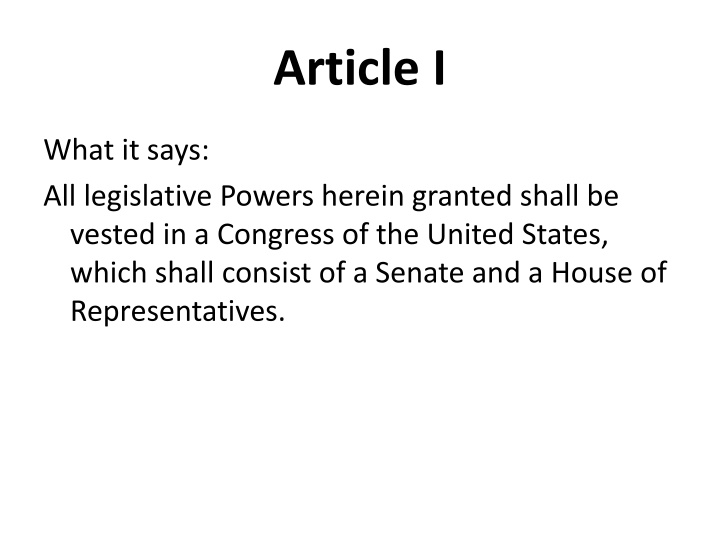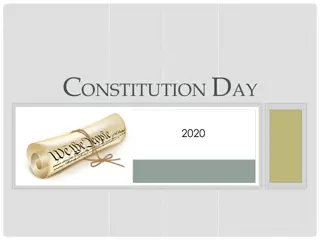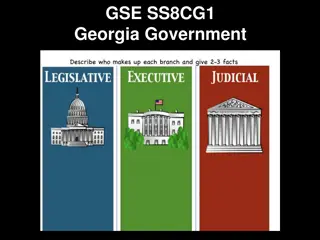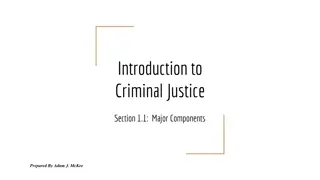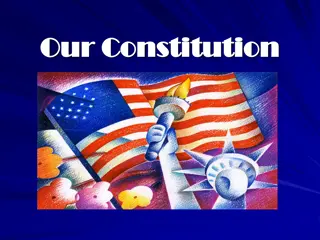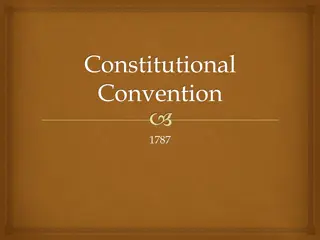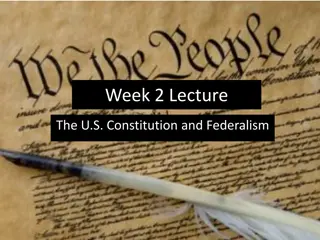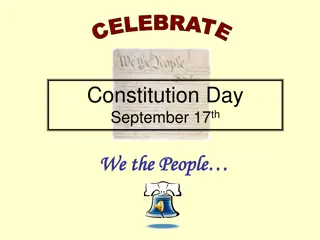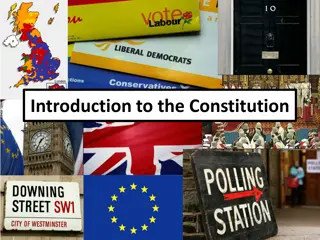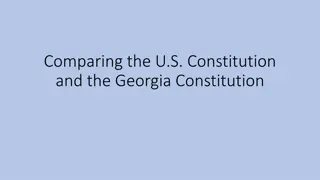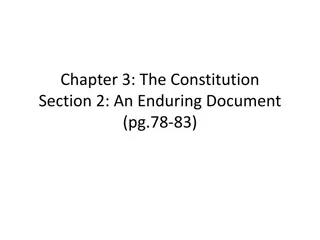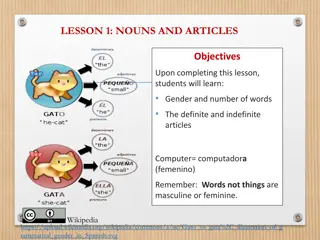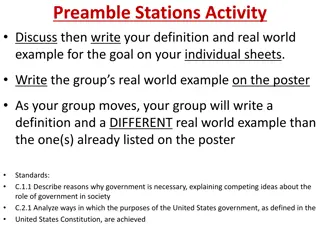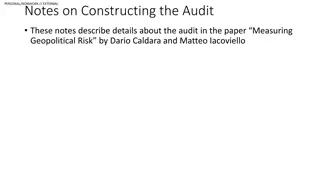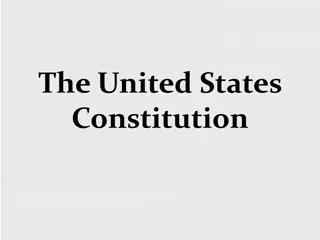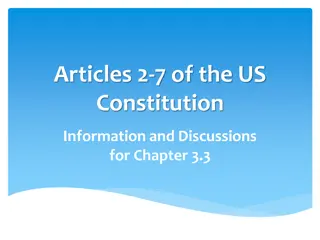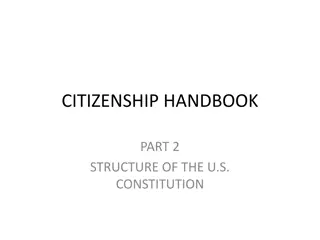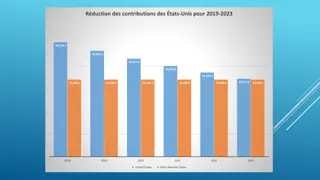Overview of United States Constitution Articles
The United States Constitution consists of several articles outlining the separation of powers among the branches of government. It establishes the legislative, executive, and judicial branches as well as the procedures for amending the Constitution and recognizing state laws.
Download Presentation

Please find below an Image/Link to download the presentation.
The content on the website is provided AS IS for your information and personal use only. It may not be sold, licensed, or shared on other websites without obtaining consent from the author.If you encounter any issues during the download, it is possible that the publisher has removed the file from their server.
You are allowed to download the files provided on this website for personal or commercial use, subject to the condition that they are used lawfully. All files are the property of their respective owners.
The content on the website is provided AS IS for your information and personal use only. It may not be sold, licensed, or shared on other websites without obtaining consent from the author.
E N D
Presentation Transcript
Article I What it says: All legislative Powers herein granted shall be vested in a Congress of the United States, which shall consist of a Senate and a House of Representatives.
Article II What it says: The executive Power shall be vested in a President of the United States of America. He shall hold his office during the Term of four years, and, together with the Vice President, chosen for the same Term, be elected as follows:
Article II What it says: Each state shall appoint, in such a Manner as the Legislature thereof may direct, a Number of Electors, equal to the whole Number of Senators and Representatives to which the State may be entitled in the Congress: but no Senator or Representative, or Person holding an Office of Trust or Profit under the United States, shall be appointed an Elector.
Article II What it says: The Congress may determine the Time of choosing the Electors, and the Day on which they shall give their Votes; which Day shall be the same throughout the United States.
Article III What it says: The Judicial power of the United States, shall be vested in one Supreme Court, and in such Inferior Courts as the Congress may from time to time ordain and establish. The Judges, both of the Supreme and Inferior Courts, shall hold their Offices during good Behavior, and shall at states Times, receive for their Services a Compensation which shall not be diminished during their Continuance in Office.
Article IV What it says: Full Faith and Credit shall be given in each State to the public Acts, Records, and judicial Proceedings of every other state. And the Congress may be general laws prescribe the Manner in which such Acts, Records, and Proceedings shall be proved, and the Effect thereof.
Article V What it says: The Congress, whenever two thirds of both Houses, shall deem it necessary, shall propose Amendments to this Constitution, or, on the Application of the Legislatures of two-thirds of the several States, shall call a Convention for proposing Amendments, which, in either Case, shall be valid to all intents and Purposes, as Part of this Constitution, when ratified by the Legislatures of three-fourths of the several states
Article V What it says (continued): Of by Conventions in three-fourths thereof, as the one or the other Mode of Ratification may be proposed by the Congress; Provided that no Amendment which may be made prior to the Year One thousand eight hundred and eight shall in any Manner affect the first and fourth Clauses in the Ninth Section of the first Article; and that no State, without its Consent, shall be deprived of its equal suffrage in the Senate.
Article VI What it says: 1. All Debts contracted and Engagements entered into, before the Adoption of this Constitution, shall be as valid against the United States under this Constitution, as the Confederation.
Article VI What it says (continued): 2. This Constitution, and the Laws of the United States which shall be made in Pursuance thereof; and all Treaties made, or which shall be made, under the Authority of the United States, shall be the supreme Law of the Land; and the Judges in every State shall be bound thereby, any Thing in the Constitution or Laws of any State to the Contrary notwithstanding.
Article IV What it says (continued): 3. The Senators and Representatives before mentioned, and the Members of the several State Legislatures, and all executive and Judicial Officers, both of the United States and of the several States, shall be bound by Oath or Affirmation, to support this constitution; but no religious Test shall ever be required as a Qualification to any Office or public Trust under the United States.
Article VII What it says: The Ratification of the Conventions of nine States, shall be sufficient for the Establishment of this Constitution between the States so ratifying the Same.
The Preamble What it says: We the people of the United States in Order to form a more perfect Union, establish Justice, Insure domestic Tranquility, provide for the common defense, promote the general Welfare, and secure the Blessings of Liberty to ourselves and our Posterity, do ordain and establish this Constitution for the United States of America.
